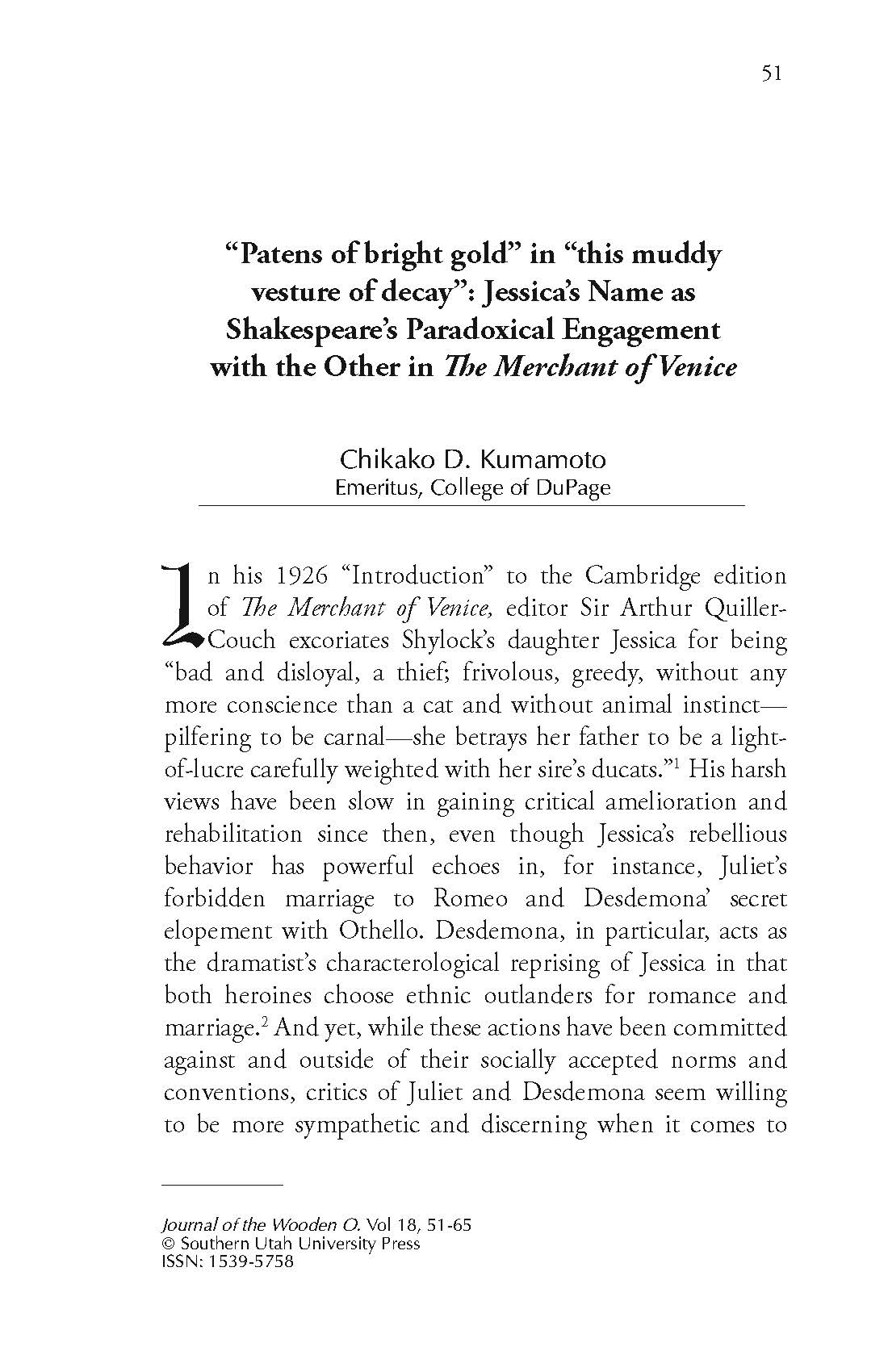“Patens of bright gold” in “this muddy vesture of decay”: Jessica’s Name as Shakespeare’s Paradoxical Engagement with the Other in The Merchant of Venice
Main Article Content
Abstract
In his 1926 “Introduction” to the Cambridge edition of The Merchant of Venice, editor Sir Arthur Quiller-Couch excoriates Shylock’s daughter Jessica for being “bad and disloyal, a thief; frivolous, greedy, without any more conscience than a cat and without animal instinct—pilfering to be carnal—she betrays her father to be a light-of-lucre carefully weighted with her sire’s ducats.”1 His harsh views have been slow in gaining critical amelioration and rehabilitation since then, even though Jessica’s rebellious behavior has powerful echoes in, for instance, Juliet’s forbidden marriage to Romeo and Desdemona’ secret elopement with Othello. Desdemona, in particular, acts as the dramatist’s characterological reprising of Jessica in that both heroines choose ethnic outlanders for romance and marriage.2 And yet, while these actions have been committed against and outside of their socially accepted norms and conventions, critics of Juliet and Desdemona seem willing to be more sympathetic and discerning when it comes to interpreting these heroines and their choices of personal destiny.
